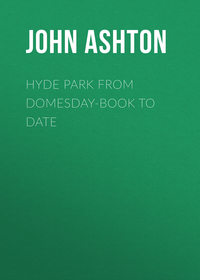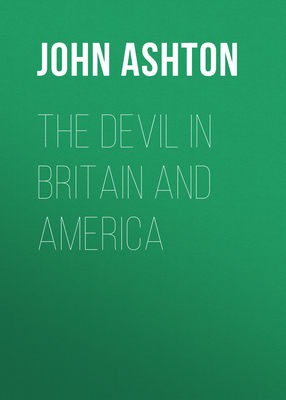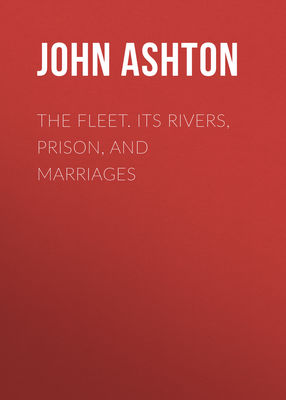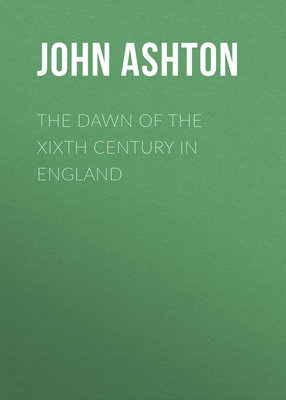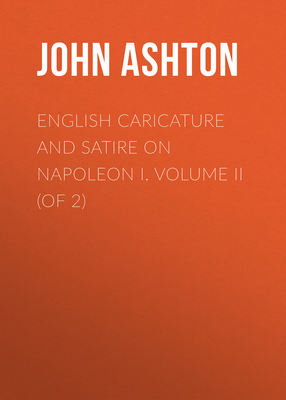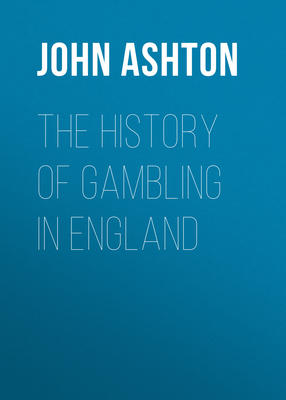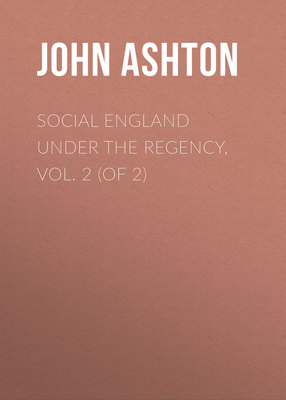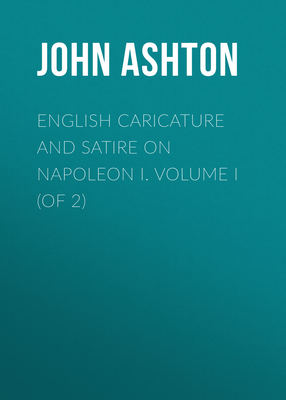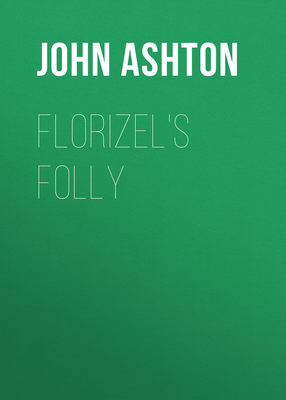Kitabı oku: «Hyde Park from Domesday-book to Date», sayfa 2
Sindercombe was tried, found guilty, and sentenced to be hanged, drawn and quartered; but, on the night previous to his execution, he found means to poison himself, and so cheated the gallows. The coroner’s jury found a verdict of felo de se,22 and “On the same day, February 17, Miles Sindercom aforesaid, being found to have murthered himself, his Body was, according to Law, drawn to the open place upon Tower Hill, at a Horses Taile, with his head foreward, and there, under the Scaffold of Common execution, a Hole being digg’d, he was turned in stark naked, and a stake, spiked with Iron, was driven through him into the earth; That part of the stake which remaines above ground, being all plated with Iron, which may stand as an example of terror to all Traytors for the time to come.”
Previous to this, it had been found necessary to protect the Park, by authority, as we see by two entries in the Journals of the House of Commons. “7 Oct., 1643. Ordered, That the Officers and Soldiers at the Courts of Guard be required not to permit any to cut down Trees or Woods in Hyde Park, or Maribone Park, but such as are authorized thereto by Ordinance of Parliament; and not to suffer any such persons to go out of the Works to cut the Woods in these two Parks, or to bring any from thence, but by Warrant from the Committees appointed for that Ordinance: and the Officers and Soldiers at the Courts of Guard are required, from time to time, to be aiding and assisting to Sir John Hippesley, a Member of this House, on all Occasions, to prevent the cutting down or destroying of the said Parks, unless it be by Authority of the Ordinance aforesaid.”
And there is another entry on Oct. 14, 1644. “Whereas Information hath been given, That several unruly and disorderly Persons have, in a tumultuous and riotous Manner, broken into Hide Park, pulled down the Pales to destroy his Majesty’s Deer and Wood there, notwithstanding strict Command hath been given to the Contrary: It is Ordered and Ordained, by the Lords and Commons in Parliament, That the said Park and Deer, and the Woods and Pales, belonging to the said Park, are hereby protected from the Violence of any Person or Persons whatever: and that no Soldier, or other, shall presume to pull down, or take away, any of the Pales belonging to the same, nor kill, or destroy, any Deer therein; or cut, fell, or carry away, any Wood growing in or about the said Park, or Mounds thereof. And it is further Ordered for the better Prevention of the Mischiefs aforesaid, That all Captains and Commanders of Guards and Forts near the said Park, shall give Notice of this Ordinance to the Soldiers under their several Commands: And that they themselves likewise do their Uttermost Endeavours, that this Ordinance shall be obeyed in all Points: And, lastly, that if any Others, not being Soldiers, shall offend contrary to this Ordinance, that the Keepers of the said Park, or some of them may charge any of his Majesty’s Officers with the said offenders: Who are to be brought before the Parliament, to be proceeded with according to their Demerits.”
When the King “came to his own again,” the gentlemen who had purchased Hyde Park, had to restore it to the Crown, on the grounds that the sale had never been ratified by Parliament: and an early Act of His Majesty’s was to build a wall around the Park, and re-stock a portion of it with deer.
CHAPTER III
The camp in Hyde Park during the Plague of 1665 – Boscobel Oaks in the Park – When first opened to the public – What it was then like – The Cheesecake House – Its homely refections – Orange girls.
In 1665, at the time of the great Plague, Hyde Park was put to a sad use, as is well described in a contemporary poem entitled “Hide Park Camp Limned out to the Life, etc.”
“In July, Sixteen hundred sixty and five,
(O happy is the Man that’s now alive)
When God’s destroying Angel sore did smite us,
’Cause he from sin could by no means invite us:
When Lovely London was in Mourning Clad,
And not a countenance appear’d but sad;
When the Contagion all about was spread;
And People in the Streets did fall down dead.
When Money’d fugitives away did flee,
And took their Heels, in hopes to scape scot-free.
Just then we March’t away, the more’s the pitty,
And took our farewell of the Doleful City.
With heavy Hearts unto Hide Park we came,
To chuse a place whereas we might remain:
Our Ground we view’d, then streight to work we fall,
And build up Houses without any Wall.
We pitched our Tents on Ridges, and in Furrows,
And there encamp’t, fearing th’ Almighty’s Arrows.
But O alass! What did all this avail:
Our men (ere long) began to droop and quail.
Our Lodgings cold, and some not us’d thereto,
Fell sick, and dy’d, and made us more adoe.
At length the Plague amongst us ’gan to spread,
When ev’ry morning some were found stark dead.
Down to another Field the sick were t’ane;
But few went down, that e’er came up again.
For want of comfort, many, I observ’d,
Perish’d and dy’d, which might have been preserv’d.
But that which most of all did grieve my Soul,
To see poor Christians drag’d into a Hole:
Tye Match about them, as they had been Logs,
And draw them into Holes, far worse than Dogs.
When each Man did expect his turn was next,
O then our Hearts with sorrow was perplext.
Our Officers amazed stood, for dread,
To see their men no sooner sick but dead.
But that which most of all did grieve them, Why?
To help the same there was no remedy.
A Pest-house was prepar’d, and means was us’d,
That none should be excluded, or refus’d:
Yet all would not avail, they dy’d apace,
As one dy’d out, another took his place.
A sad and dismal time, as ere was known,
When Corps, in the wide fields about was strown.
“But stay, my Muse; I think ’tis but a folly
To plunge ourselves too deep in Melancholly;
Let us revive a little, though in jest,
Of a bad Market we must make the best.
Is nothing left to chear us? not one Sup?
We’le try conclusions, ere the Game be up.
Methinks I hear some say, Friend, Prithee hark,
Where got you drink and Victuals in the Park?
I, there’s the Query; We shall soon decide it,
Why, We had Men, cal’d Sutlers, provided;
Subtle they were, before they drove this Trade,
But by this means, they all were sutler made.
No wind, or weather, ere could make them flinch,
Yet they would have the Souldiers at a pinch.
For my part, I know little of their way,
But what I hear my fellow Souldiers say;
One said, Their Meat and Pottage was too fat;
Yes, quoth another, we got none of that:
Besides, quoth he, they have a cunning sleight,
In selling out their Meat by pinching weight;
To make us pay sixpence a pound for Beefe,
To a poor Souldier, is no little grief.
Their Bread is small, their Cheese is mark’t by th’ Inch,
And, to speak truth, they’re all upon the pinch.
As for their Liquor, drink it but at leisure,
And you shall ne’re be drunk with over measure.
Thus would they often talk to one another;
And, for my part, I speak it as a Brother,
They for the Sutlers put up many a Prayer,
When, for themselves they took not so much care.
This was, it seems, most of the Sutlers’ dealings,
But yet, I say, there’s none but have their failings.
They might do this (poor men), yet think no evil.
Therefore they’l go to God, or to the D – .
“But leave them now, because Tat-too has beat,
And fairly to our Tents let us retreat,
Where we keep such a coyl, and such a quarter,
And all to make the tedious nights seem shorter.
Then down we lie, until our bones do ake,
First one side, then the other weary make.
When frost did pinch us, then we shake and shiver,
And full as bad we were in stormy weather;
A boistrous blast, when men with sleep were dead,
Would bring their Houses down upon their head.
Thus in extremity, we often lay,
Longing to see the dawning of the day
Which brought us little comfort, for the Air
Was very sharp, and very hard our fare.
Our sufferings were almost beyond belief,
And yet we found small hopes to have relief.
“Our brave Commanders, Valiant, Stout and Bold,
Was neither pinch’t with hunger, nor with cold,
They quaft the Bowls about, one to another,
With good Canary they kept out the weather;
And oft to one another would say thus,
(When we are gone, then gone is all with us)
And thus, in mirth, they chear’d their Spirits up,
By taking t’other Pipe, and t’other Cup:
Much good may it do their hearts; we should have done
The same ourselves, had we been in their room.
We were as glad when we got to a Cup
Of nappy Ale, to take a pretty sup;
But durst not go to Town, on any cause,
For fear the Martial catch us in his Claws.
About the Park to walk for recreation,
We might be free, we knew our Bounds and Station.
But not a Coach was stirring any where,
Unless t’were such as brought us in our Beer.
Alass, Hide Park, these are with thee sad dayes,
The Coaches all are turn’d to Brewers’ Drayes;
Instead of Girls with Oranges and Lemons,
The Bakers’ boys, they brought in loaves by dozens;
And by that means, they kept us pretty sober,
Until the latter end of wet October.
They promis’d we should march, and then we leapt,
But all their promises were broke (or kept).
They made us all, for want of Winter Quarters,
Ready to hang ourselves in our own Garters.
“At last, the Dove came with the Olive Branch,
And told, for certain, that we should advance
Out of the Field; O then we leapt for joy,
And cry’d with one accord, Vive le Roy.
What did the Sutlers then? nay, what do ye think?
For very grief, they gave away their drink:
But it’s no matter, let them laugh that wins,
They were no loosers (God forgive their sins).
“Upon Gunpowder Treason day, (at Night)
We burnt our Bed-Straw, to make Bone fire light;
And went to Bed, that night, so merry hearted
For joy we and our Lodgings should be parted;
Next morning we were up by break of day,
To be in readinesse to march away.
We bid adue to Hide Park’s fruitful Soil,
And left the Country to divide the Spoyl.
With flying Colours we the City enter,
And, then, into our Quarters boldly venture.
Our Land-Ladyes sayd Welcome (as was meet),
But, for our Landlords, some lookt sowr, some sweet.
So soon as we were got into warm Bed,
We look’t as men new metamorphosed.
But now I think ’tis best to let them sleep,
Whilst I out of the Chamber softly creep,
To let you know, that now my task is done,
Would I had known as much when I begun.
A sadder time, I freely dare engage
Was never known before, in any Age.
God bless King Charles and send him long to reign,
And grant we never may know the like again.”
In connection with Hyde Park and the Restoration, I may mention the following, copied from The Times, December 18, 1862. “A Relic of the Past in Hyde Park. Perhaps few of the many who visit this Park are aware that on the right hand side of the Carriage drive, between the Receiving house and the Bridge, there still remains an interesting relic of the Stuart period. It is a tree, one of two planted by Charles II. from acorns taken from the Boscobel Oak, in Somersetshire, in which his father successfully sought refuge, and were planted here to commemorate the event. They have both been dead some years, and one, much decayed, was removed in 1854; the other, beautifully clothed with ivy, which gives it the appearance of life, still remains. In common with all the other old trees in the Park, it is protected by a fence of iron hurdles; but, surely, a relic like this deserves a handsome and appropriate railing, with a descriptive brass plate affixed, to point out to strangers this historical antiquity, now known only to local historians.”
If the traditional lore of the writer of the above is on a par with his historical knowledge (vide italics) this statement has not much value. Indeed, a correspondent in Notes and Queries (3s. iii. 96), referring to this paragraph, and speaking of the trees, says “the tradition really and truly connected with them is the fatal duel fought by the fifth Lord Mohun and the Duke of Hamilton, in November, 1712.”
Hyde Park seems to have been first opened to the public about 1637, for in the dedication of James Shirley’s play of Hide Parke (published in that year) to the Right Hon. Henry, Earl of Holland, he says, “This Comedy in the title, is a part of your Lordship’s Command, which heretofore grac’d, and made happy by your smile, when it was presented, after a long silence, upon first opening of the Parke.” And it is from this contemporary play that we are able to learn somewhat of the Park itself. Nightingales and cuckoos abounded, and both are several times mentioned.
Mistress Caroll. Harke, Sir, the Nightingale, there’s better lucke Comming towards us.
Fairfield. When you are out breath
You will give over, and for better lucke,
I do beleeve the bird, for I can leave thee,
And not be in love with my owne torment.
M. Ca. How, sir?
Fa. I ha said, stay you and practise with the bird,
’Twas Philomel they say; and thou wert one,
I should new ravish thee.
…
Mistress Bonavent. I heard it yesterday warble so prettily.
Lacy. They say ’tis luckie, when it is the first
Bird that salutes our eare.
Bo. Doe you believe it?
Tryer. I am of his minde, and love a happy Augury.
La. Observe the first note alwayes
Cuckoo!
Is this the Nightingale?
And then also there were refreshments to be taken at the Keeper’s Lodge (sometimes called Price’s Lodge, from Gervase Price, a keeper), as we read in Hide Parke.
Rider. I wish your sillabub were nectar, Lady.
Mistress Bonavent. We thank you, sir, and here it comes already.
Enter Milkemaide.
Mistress Julietta. So, so, is it good milke?
Bon. Of a Red Cow.
Mistress Caroll. You talke as you inclin’d to a consumption. Is the wine good?
Pepys mentions this Lodge and its refreshments more than once. “June 3, 1668. To the Park, where much fine company and many fine ladies, and in so handsome a hackney I was, that I believe, Sir W. Coventry and others who looked on me, did take me to be in one of my own, which I was a little troubled for: so to the Lodge and drank a cup of new milk, and so home.” – “April 25, 1669. Abroad with my wife in the afternoon to the Park, where very much company, and the weather very pleasant. I carried my wife to the Lodge, the first time this year, and there, in our coach, eat a cheese cake and drank a tankard of milk.”
Not to know the Lodge was to show oneself of small account, as we see in a comedy called “The English Monsieur,” by the Hon. James Howard, son of the Earl of Berkshire, acted with much applause at the Theatre Royal, in 1674.
“Comely. Nay, ’tis no London female; she’s a thing that never saw Cheesecake, Tart, or Syllabub at the Lodge in Hyde Park.”
According to Thomas Brown, of Shifnall, the ladies also partook of refreshment in their coaches, for he says, – “See, says my Indian, what a Bevy of Gallant Ladies are in yonder Coaches; some are Singing, others Laughing, others Tickling one another, and all of them Toying and devouring Cheese Cakes, March-Pane, and China Oranges.”23 And this in the sober days of William and Mary!
About this time the name of “the Lodge” was generally dropped, and it was called the Cake House or Mince Pie House, until it was pulled down early middle of the century. It was situated nearly on the site of the present Receiving House of the Royal Humane Society, as is shown in a “Plan of Hyde Park, as it was in 1725. From a Plan of the Parish of St. George, Hanover Square, in the Vestry Room of that Parish.”24 It was made of timber and plaster, and must have had a very picturesque look when the accompanying illustration was taken in 1826. The other view of it, in 1804, shows its surroundings in the Park. “The Cake House” furnished the title of one of Charles Dibdin’s table entertainments, first performed in 1800.
Then too there were the Orange girls, whose vocation was not entirely confined to the theatres,
and who were chaffed by, and gave saucy answers to, the beaux. In a play by Thomas Southern (the author of Isabella and Oroonoko), published in 1693, called The Maid’s last Prayer, Or Any, rather than Fail, we find (p. 37) Lord and Lady Malapert discussing the propriety of visiting their country seat.
L. Mal. Well, well, there are a thousand innocent diversions.
La. Mal. What! Angling for Gudgeons, Bowls, and Ninepins?
L. Mal. More wholesome and diverting than always the dusty Mile Horse driving in Hide-Park.
La. Mal. O law! don’t profane Hide-Park: Is there anything so pleasant as to go there alone, and find fault with the Company? Why, there can’t a Horse or a Livery ’scape a Man, that has a mind to be witty. And then I sell bargains to the Orange Women.
CHAPTER IV
Foot and horse racing in the Park – Prize fighting – Duelling – The duel between Lord Mohun and the Duke of Hamilton.
Then, also, there were races run in the Park, both horse, coach and foot. In Shirley’s Hide Parke we read, —
L. Bonavent. Be there any races here?
Mr. Lacy. Yes, Sir, horse and foot.
…
Mistress Bon. Prethee, sweetheart, who runnes?
La. An Irish and an English footeman!
M. Bon. Will they runne this way?
La. Just before you, I must have a bet!
[Exit.
M. Bon. Nay, nay, you shall not leave me.
Mistress Carroll. Do it discreetely, I must speak to him,
To ease my heart. I shall burst else.
Weele expect ’em here, Cousen, do they runne naked?
M. Bon. That were a most immodest sight.
M. Ca. Here have bin such fellowes, Cousen.
M. Bon. It would fright the women!
M. Ca. Some are of opinion it brings us hither.
Harke what a confusion of tongues there is.
Let you and I venture a paire of Gloves
Upon their feete; I’le take the Irish.
M. Bon. ’Tis done, but you shall pay if you lose.
M. Ca. Here’s my hand, you shall have the Gloves if you winne.
M. Bon. I thinke they are started.
The Runners, after them the Gentlemen
Omnes. A Teag, A Teag, make way for shame.
La. I hold any man forty peeces yet.
Venture. A hundred pound to ten! a hundred peeces to ten!
Will no man take me?
M. Bon. I hold you, Sir.
Ven. Well, you shall see. A Teag! a Teag! hey!
Tryer. Ha! Well run, Irish!
Bon. He may be in a Bogge anon.
[Exeunt.
The horse race is thus described.
Enter Jockey and Gentleman
I. What dost thinke, Jockey?
II. The crack o’ th’ field against you.
Jo. Let them crack nuts.
I. What weighte?
II. I think he has the heeles.
III. Get but the start.
Jo. However, if I get within his quarters, let me alone.
[Exeunt.
Confused noise of betting within, after that, a shoute
M. Ca. They are started.
Enter Bonvile, Rider, Bonavent, Tryer, and Fairefield
Ri. Twenty pounds to fifteene.
L. Bon. ’Tis done we’e.
Fa. Forty pounds to thirty.
L. Bon. Done, done, Ile take all oddes.
Tr. My Lord, I hold as much.
L. Bon. Not so.
Tr. Forty pounds to twenty.
L. Bon. Done, done.
M. Bon. You ha’ lost all, my Lord, and it were a Million.
L. Bon. In your imagination, who can helpe it?
La. Venture had the start, and keepes it.
L. Bon. Gentlemen, you have a fine time to triumph,
’Tis not your oddes that makes you win.
Within—Venture! Venture!
[Exeunt Men.
Julietta. Shall we venture nothing o’ th’ horses?
What oddes against my Lord?
M. Ca. Silke stockings.
Ju. To a paire of perfum’d gloves, I take it.
M. Ca. Done!
M. Bon. And I as much.
Ju. Done with you both!
M. Ca. Ile have em Spanish sent.
Ju. The stockings shall be scarlet, if you choose
Your sent, Ile choose my sent.
M. Ca. ’Tis done, if Venture
Knew but my lay, it would halfe breake his necke now,
And crying A Jockey! hay!
[A shoute within.
Ju. Is the wind in that coast, harke the noyse.
Is Jockey now?
M. Ca. ’Tis but a paire of gloves.
Ju. Still it holds.
[Enter My Lord.
How ha’ you sped, my Lord?
L. Bon. Won, Won, I knew by instinct
The mare would put some tricke upon him.
M. Bon. Then we ha’ lost; but, good my Lord, the circumstance.
L. Bon.
L. Bon. Great John at all adventure and grave Jockey
Mounted their severall Mares, I sha’not tell
The story out for laughing, ha, ha, ha,
But this in briefe; Jockey was left behind,
The pitty and the scorne of all the oddes,
Plaid ’bout my eares like Cannon, but lesse dangerous,
I looke all still: the acclamations was
For Venture, whose disdainful Mare threw durt
In my old Jockey’s face, all hopes forsaking us,
Two hundred peeces desperate, and two thousand
Oathes sent after them: upon the suddaine,
When we expected no such tricke, we saw
My rider, that was domineering ripe,
Vault ore his Mare into a tender slough,
Where he was much beholding to one shoulder
For saving of his necke; his beast recovered,
And he, by this time, somewhat mortified,
Besides mortified, hath left the triumph
To his Olympick Adversary, who shall
Ride hither in full pompe on his Bucephalus,
With his victorious bagpipe.
These pedestrian races between “Running footmen” seem to have been common in Hyde Park, as Pepys notes under date August 10, 1660. “With Mr. Moore and Creed to Hyde Park by Coach, and saw a fine foot race three times round the Park, between an Irishman and Crow, that was once my Lord Claypole’s footman.” And for another instance of horse-racing in the Park we can find one in the comedy of The Mulberry Garden, by Sir Charles Sedley (1668), where, in Act I. Scene 2, Ned Estridge, speaking of Sir John Everyoung, says, “ ’Tis a pleasant old fellow. He has given me a hundred pounds for my Graybeard, and is to ride himself, this day month, twice round the Park, against a bay stone horse of Wildishe’s, for two hundred more.” Whilst for a different kind of race we have the testimony of Evelyn, who says: “May 20th, 1658. I went to see a coach race in Hide Park, and collationed in Spring Garden.” In The Merry Life and mad Exploits of Captain James Hind, The great Robber of England, a noted highwayman temp. Charles II., is a story of “How Hind robbed a Gentleman in Hide Park of a Bag of Money. Hind being well mounted, went one Evening into Hide Park, to see some Sport, and riding by a Gentleman’s Coach, espied a Bag of Money, upon which Hind used some Discourse about the Race that was going to be run; but the Race beginning, the Gentleman caused his Coach to stand still, that he might the easier judge which of the Horses run best. Hind’s head not being idle, rode close to the Coach side, took the Bag of Money in his hands, and rode away with it. The Gentleman presently missing his Bag of Money, cries out, Stay him, Stay him, I am robbed. Many rode after him, especially the Captain whom he robbed at Chalk Hill, who pursued him very hard. Hind riding by St. James’s, said to the Soldiers, I have won the Wager; but holding of the Bag fast, his Cloak fell off, which he left for them that came next. But when he came to his companions, he said, I never earned a hundred pounds so dear in all my life.”
Larwood says that foot-racing was carried on till early in the present century, and gives instances down to 1807; the only one I am at all able to verify was one run by two boys on 5th March, 1807 – when one dropped down dead —but that race was run in St. James’s Park.
In the somewhat brutal days of George III. (which brutality has descended to our own times) the Park was disgraced by prize-fights, and several duels were fought there, although the place was not so private as Wimbledon Common, Putney, or Kensington Gravel Pits. One of the favourite places in the Park for these encounters was near the Cheesecake House, or Price’s Lodge, for it was there that the celebrated duel between Lord Mohun and the Duke of Hamilton took place in 1712, and it certainly retained its position till 1751, when Fielding wrote Amelia, where Colonel Bath and Booth meeting in St. James’s Park, the Colonel says, “ ‘I will tell you therefore, Sir, that you have acted like a Scoundrel.’ – ‘If we were not in the Park,’ answered Booth warmly, ‘I would thank you very properly for that Compliment.’ – ‘O Sir!’ cries the Colonel, ‘we can soon be in a convenient place.’ Upon which Booth answered he would attend him wherever he pleased. – The Colonel then bid him come along, and strutted forward directly up Constitution Hill to Hyde Park, Booth following him at first, and afterwards walking before him, till they came to that Place which may be properly called the Field of Blood, being that part a little to the Left of the Ring, which Heroes have chosen for the Scene of their Exit out of this World.” Booth ran the Colonel through the body, without seriously injuring him, and a reconciliation took place, ending, “ ‘I bleed a little, but I can walk to the house by the water, (the Cheesecake House) and, if you will send me a Chair thither, I shall be obliged to you.’ ”25
I propose to give an account of some authentic duels which have taken place in Hyde Park, commencing with that of Lord Mohun and the Duke of Hamilton, on November 15th, 1712, all the rest being taken from The Gentleman’s Magazine.
This duel was invested with a political colouring, the Duke being the leader of the Jacobite faction in Scotland, and Mohun being a violent Whig; so that the Tories, enraged at Hamilton’s fall, did not scruple to call it a Whig murder, and denounce Lord Mohun’s second, General Macartney, as having unfairly stabbed him; but from the evidence taken at the two inquests,26 there is not a scintilla of truth in the statement.
The story of the duel is, briefly, this. The two noblemen were opposing parties in a lawsuit; and, on Nov. 13, 1712, met in the chambers of a Master in Chancery, when the Duke remarked of a witness – “There is no truth or justice in him.” Lord Mohun replied, “I know Mr. Whitworth; he is an honest Man, and has as much truth as your Grace.” This, fanned to flame by officious friends, was enough; and, two days afterwards, they fought, early in the morning, in Hyde Park, near Price’s Lodge; their seconds, Col. Hamilton and General Macartney, also fighting, as was the custom; or, as they expressed it, “taking their share in the dance.”
The duel is shortly described by a witness, “John Reynolds of Price’s Lodge in the Park, Swore, That hearing of a Quarrel, he and one Nicholson, got Staves and ran to part them: that he Reynolds was within 30 or 40 yards of Duke Hamilton and my Lord Mohun when they fell. That my Lord Mohun fell into the ditch upon his back, and Duke Hamilton fell near him, leaning over him. That the two seconds ran in to them; and immediately after them this John Reynolds, who demanded the Seconds’ Swords, which they gave him, without any Resistance. He then wrested the Duke’s Sword out of his Hand, and Nicholson took away my Lord Mohun’s, and gave it to Reynolds, who carried the four swords some distance from the parties: He return’d and help’d Duke Hamilton up, who still lay on his Face. He got him up, and he walk’d about 30 Yards: they desir’d him to walk farther, and he said he could walk no farther.”
By this witness, supported by two others, we see no mention of General Macartney stabbing the Duke, as represented in the illustration, and as it was currently reported at the time. Macartney fled; but Col. Hamilton remained, stood his trial, and was found guilty of manslaughter. He accused Macartney of the foul deed, and great was the hue and cry after him. The Duchess was naturally enraged, and offered a reward of £300 for his apprehension, the Government supplementing her offer by an additional £500, but Macartney got away safely. When things were quieter, he returned, stood his trial at the Queen’s Bench, Colonel Hamilton’s testimony was contradicted, and he was acquitted of the murder, but found guilty of manslaughter. The punishment for this, by pleading benefit of Clergy, which, of course, was always done, was reduced to a very minimum – something amounting to the supposed burning of the hand with a barely warm, or cold iron – and he was restored to his rank in the army, and had a regiment given him.
